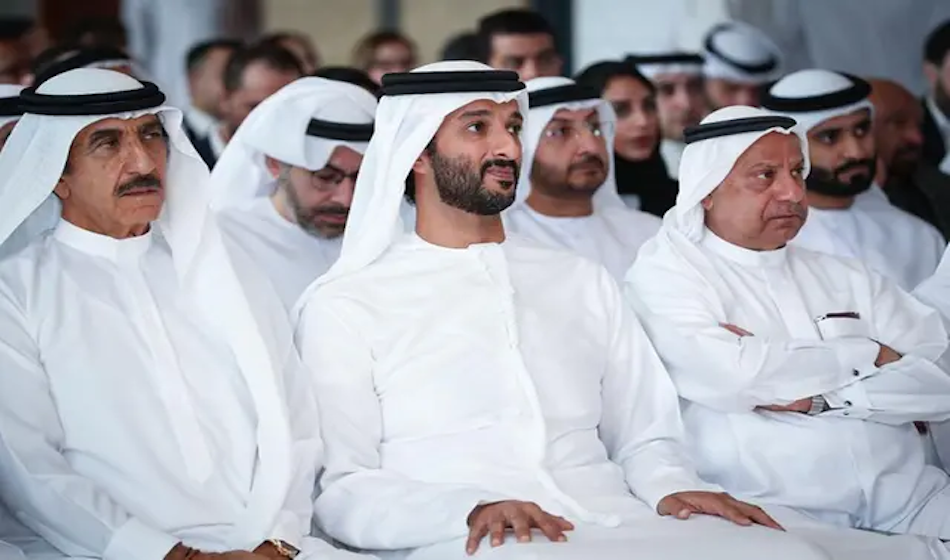
The Next Generation: Shaping Family and Nation in the UAE
The United Arab Emirates (UAE) has undergone a remarkable transformation in recent decades. From a desert nation to a global hub for innovation and commerce, the country has witnessed significant social and economic progress. This rapid change is most keenly felt by the next generation – those under 30 – who are poised to inherit the legacy of their parents and shape the future of the UAE and their family groups.
Family Dynamics in Transition
Traditionally, Emirati society has placed a strong emphasis on family unity and respect for elders. Multigenerational households were common, and decision-making often rested with the patriarch. However, the younger generation is witnessing a shift in these dynamics.
- Education and Independence: Increased access to education, particularly for women, has fostered greater independence and career aspirations among the younger generation. This can lead to delayed marriage and a greater emphasis on personal goals before starting a family. Example: Fatima, a young Emirati woman, studied engineering at a prestigious university in Dubai. Inspired by her female professors, she aspires to become a leader in the renewable energy sector before starting a family of her own.
- Global Influences: Exposure to Western culture through travel, media, and education is influencing family structures. While core values like respect and filial piety remain important, the younger generation may be more open to nuclear families and less hierarchical family structures. Example: Omar and Aisha, a young Emirati couple, decided to live in a separate apartment after their wedding. While they maintain close ties with their extended families, they value their independence and make joint decisions about their household finances.
- Economic Empowerment: Women play a more prominent role in the UAE workforce, contributing financially to families and making decisions about household finances. This shared responsibility can lead to a more collaborative approach within families. Example: Sarah, a marketing professional, and her husband, Khalid, an architect, share household chores and childcare responsibilities equally. They discuss financial decisions together, fostering a sense of partnership within their family unit.
The Future of Family Groups
While some aspects of traditional family life may evolve, the core values of family unity and support remain important for the next generation. Here’s how they envision the future of their family groups:
- Strong Bonds, Evolving Structures: The next generation values strong family bonds regardless of physical proximity. Technology allows for easier communication and connection, fostering closer ties even for geographically dispersed families. Example: Siblings like Aisha and Ali, who live in different countries due to their education and careers, can still maintain close relationships through video calls and frequent visits during holidays. Family group chats and online games also help them stay connected.
- Shared Values, Individual Goals: Respect for elders and cultural traditions are likely to remain important. However, there will be a greater emphasis on individual goals and aspirations within the family unit. Example: Parents like Maryam and Hassan may encourage their children to pursue their chosen career paths, like filmmaking or artificial intelligence research, even if it differs from traditional family expectations of becoming a doctor or engineer.
- Balancing Tradition and Modernity: The next generation seeks to strike a balance between preserving their cultural heritage and embracing the opportunities of a globalized world. This may lead to a more progressive approach to family structures while maintaining core values. Example: A young couple like Noura and Ahmed may choose to have a modern wedding ceremony that incorporates traditional Emirati customs like henna painting and celebratory dances.
Shaping the UAE’s Future: A Collaborative Effort
The next generation is optimistic about the UAE’s future. They are eager to contribute to the nation’s continued success and see themselves playing a leading role in various sectors:
- Entrepreneurship and Innovation: Young Emiratis are highly motivated and entrepreneurial. They are likely to drive innovation across various sectors, from technology to sustainable development. Example: Noor bint Rashid, a young Emirati woman, has co-founded a company that develops sustainable packaging solutions for e-commerce businesses in the UAE.
- Diversification and Globalization: Recognizing the importance of economic diversification, the next generation will play a crucial role in developing new industries beyond oil and gas. They are also likely to champion further globalization and openness to new ideas. Example: Khalid Al Qasimi, a young Emirati businessman, has established a trading company that connects Emirati businesses with international partners in Europe and Asia.
- Social Progress and Sustainability: The next generation is concerned about environmental and social issues. They are likely to advocate for sustainable practices and policies that promote social inclusion and equality. Example: Salama bint Abdullah, a young Emirati activist, volunteers for a local NGO that empowers women in rural communities. She also uses social media platforms to raise awareness about environmental sustainability issues.
Challenges and Opportunities
Despite the optimism, there are challenges to navigate:
- Maintaining Cultural Identity: Rapid modernization can lead to a disconnect from cultural roots. Striking a balance between progress and tradition will be crucial for preserving the UAE’s unique identity.
- Embracing Diversity: The UAE’s population is becoming increasingly diverse. Fostering inclusion and celebrating diversity will be essential for social cohesion and stability.
- Job Market Opportunities: Ensuring there are enough high-skilled jobs to accommodate the growing and ambitious youth population is critical.
Collaboration for Success
To overcome these challenges and build a brighter future, collaboration between the generations is vital. The wisdom and experience of the older generation, coupled with the energy and innovative spirit of the younger generation, creates a powerful force for positive change.
- Mentorship and Knowledge Transfer: Experienced professionals can mentor and guide the younger generation, equipping them with the skills and knowledge needed to succeed. Example: The Dubai Chamber of Commerce has launched a mentorship program connecting young Emirati entrepreneurs with established business leaders. This program provides valuable guidance and support for the next generation of business leaders.
- Open Communication and Understanding: Open communication across generations is crucial for fostering mutual understanding and respect. Example: The Sharjah Family Council organizes regular intergenerational dialogue sessions where young people can discuss their ideas and concerns with community elders. This promotes open communication and fosters a sense of shared responsibility for the future.
- Shared Goals and Vision: By working towards a shared vision for the future, both generations can contribute to a more prosperous and sustainable UAE. Example: The UAE government’s current initiative, likely “We the UAE 2031,” which outlines a roadmap for the nation’s future development, was shaped through extensive consultation with both young people and experienced leaders. This collaborative approach ensures a shared vision for the UAE’s future.
The next generation of Emiratis stands at a pivotal juncture. Witnessing the nation’s rapid transformation firsthand, they carry the legacy of their forebears while forging their own path. This generation is defined by a unique blend of tradition and modernity. They value the strong family bonds and respect for elders that have been hallmarks of Emirati society for generations. However, they are also influenced by global trends, leading to shifts in family dynamics and a greater emphasis on individual goals alongside a collaborative approach within families.
Looking outward, the next generation is brimming with optimism for the UAE’s future. They are eager to contribute to the nation’s continued success as leaders in innovation, entrepreneurship, and sustainability. This ambition, however, is tempered by an awareness of the challenges that lie ahead. Preserving cultural identity in a rapidly modernizing world and fostering social cohesion in an increasingly diverse population will require careful navigation.
The key to unlocking a brighter future for both families and the nation lies in collaboration. By bridging the generational gap, fostering open communication, and working towards a shared vision, the wisdom and experience of the older generation can be combined with the energy and innovative spirit of the younger generation. Through mentorship, knowledge transfer, and a commitment to mutual understanding, both generations can contribute to a more prosperous, sustainable, and inclusive UAE. The journey ahead promises to be exciting, and the success of the UAE in the years to come will hinge on the collective efforts of its families, both young and old, working together to shape a brighter future for all.
